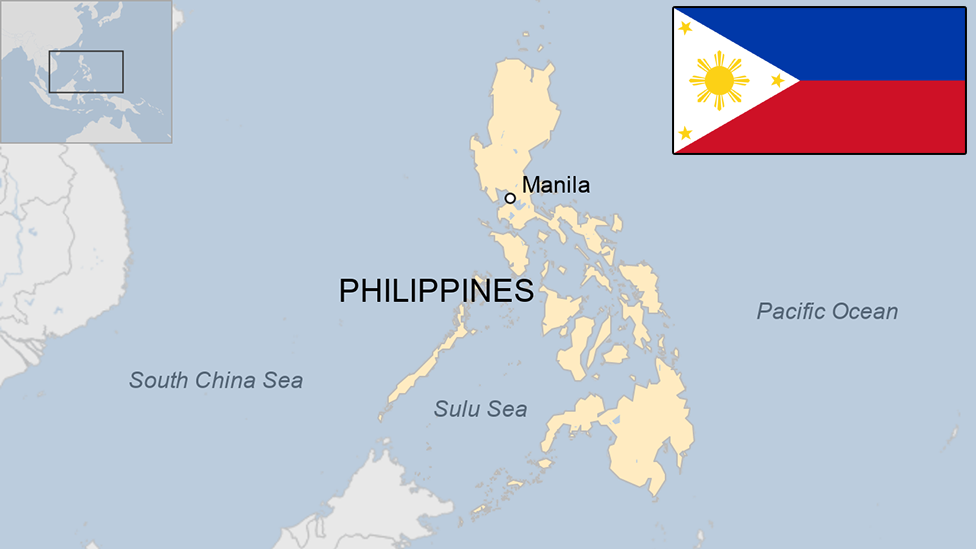Will Philippine rebel deal bring peace?
- Published
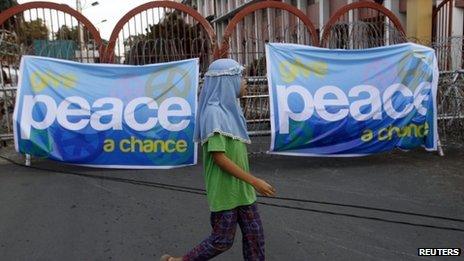
The peace deal is a key step - but a very difficult road lies ahead
Many Filipinos would never have imagined a time when their president would welcome the leader of the country's biggest Muslim rebel group into his palace.
Nor a time when Murad Ebrahim, the head of the Moro Islamic Liberation Front (MILF) - who has spent much of his life in jungle hideouts in central Mindanao - would accept.
But on Monday that was exactly what happened. They met, shook hands and exchanged gifts. Then they signed a document which both hope will pave the way to peace after 40 years of conflict.
It was undoubtedly a major step forward. President Benigno Aquino described it as a chance to "finally achieve genuine, lasting peace".
Murad Ebrahim said: "We have inked the most important document in the chapter of our history."
But behind the smiles, both sides know this is only the first step of what could be a very difficult road ahead - and many previous attempts at peace have come to nothing.
Mr Aquino himself warned at the signing ceremony: "As the saying goes, the devil is in the details. Much work remains to be done."
Details needed
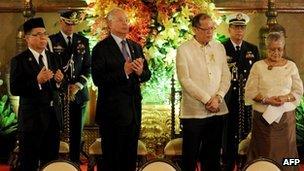
The framework agreement creates a new region - Bangsamoro, the land of the Moros
The framework agreement creates a new region with greater political powers and more control over resources than the existing semi-autonomous region it replaces.
The region will be given a new name - Bangsamoro, Land of the Moros - in recognition of the majority of the population living there.
In return the rebels have had to give up their quest for a separate state, and they have even agreed to hand in their weapons once the deal is finally implemented.
But the details of exactly how the wealth and resources will be shared, and the delicate process of disarming the rebels, have yet to be established.
Both of these issues could prove contentious. This new region has rich mineral deposits, which Filipinos in the rest of the country will be loath to give up completely.
And you only need to watch the rebels on parade - proudly displaying their weapons - to realise they are not going to be parted easily with their guns.
It is also difficult to envisage them merging with the local police to form a new regional force - one of the options being suggested.
'Death sentence'
It is not only the logistics of the agreement that the two sides have to tackle.
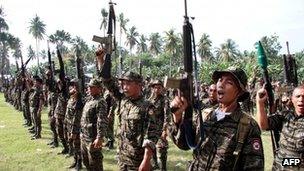
Achieving peace and disarming rebels may be an uphill battle
There are also a number of external factors that could scupper the deal.
An offshoot of the Moro Islamic Liberation Front, which calls itself the BIFF, has said it actively opposes the agreement, and it has already launched a series of small-scale attacks to make its point.
Of further concern is the reaction of a former rebel leader, Nur Misuari, who signed a previous peace deal with the government in 1996.
Days before the framework agreement was signed, he said the MILF was "signing its death sentence" and alleged that many MILF members were abandoning the group, a claim that both the government and the MILF have disputed.
Then there is the most radical group - the Abu Sayyaf - which also operates in the region, and is known for raising funds by kidnapping people for ransom. Some analysts believe it is loosely linked to al-Qaeda.
Critics of the framework agreement are concerned that disgruntled MILF members could join this group instead - something which former MILF spokesman Ed Kabalu concedes is a possibility.
"Not all of them can be accommodated in the proposed set-up," he said.
In a land where there are so many insurgencies, feuding clans and criminal elements - and it can sometimes feel like almost everyone has a gun - achieving peace is going to be an uphill battle.
Real optimism
But despite all these potential obstacles, there is still real optimism about this deal.
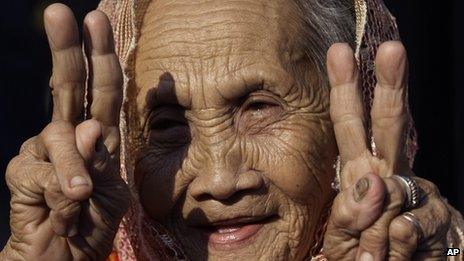
Both sides say this is the best chance for peace Mindanao has seen in decades
In the MILF's main camp, near the city of Cotabato, hundreds of rebels came down from the hills and mountains to listen to the signing of the agreement, relayed to them on loudspeakers.
They all looked happy at the prospect of peace, taking pictures of each other with their mobile phones to mark the occasion.
The many thousands of people who have been displaced from their homes by the long conflict, too, seem genuinely hopeful of peace.
Part of the reason for this optimism is that, compared with previous deals, there has been far more consultation on the ground this time. According to the government, more than 100 discussion groups have been held.
The last attempt at a peace deal, in 2008, mainly fell apart because the Christian leaders in the region felt they had not been consulted.
This time, it was different, insists Sister Telma Argata, a nun and peace advocate in central Mindanao.
"We're very supportive of the framework, and we're praying hard about it," she said. "There have been real conversations this time. I've even been to the MILF camp sometimes for dialogue."
And there was also a real sense from both sides on the negotiating panel that now is the right time for a deal.
Mr Aquino has pledged to do all he can to bring peace to Mindanao - and the MILF knows that if an agreement is not reached now, a future president might not be as sympathetic to their cause.
"I cannot but be hopeful that we can make it work this time," said Teresita Deles, the president's advisor to the peace process.
"Of course there are naysayers…. but the vast majority of people want to make this work."
Now the signing has taken place, both sides will go back to the negotiating table. A transition commission will be established, more issues finalised and then the whole proposal will put to a referendum.
The aim is to complete the process before Mr Aquino's term in office ends in 2016.
Both sides know they have a lot of hard work ahead. But now they have a framework in place, they also know this is the best chance for peace that Mindanao has seen in decades.
- Published15 October 2012
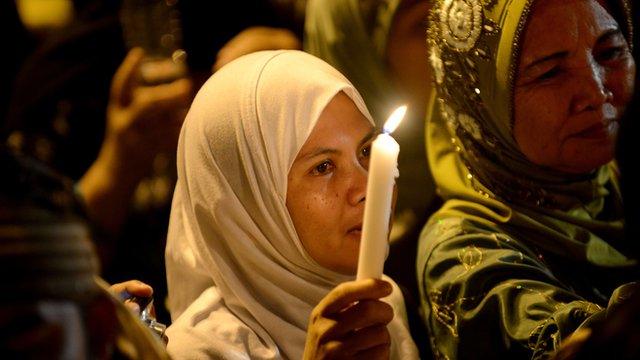
- Published15 October 2012
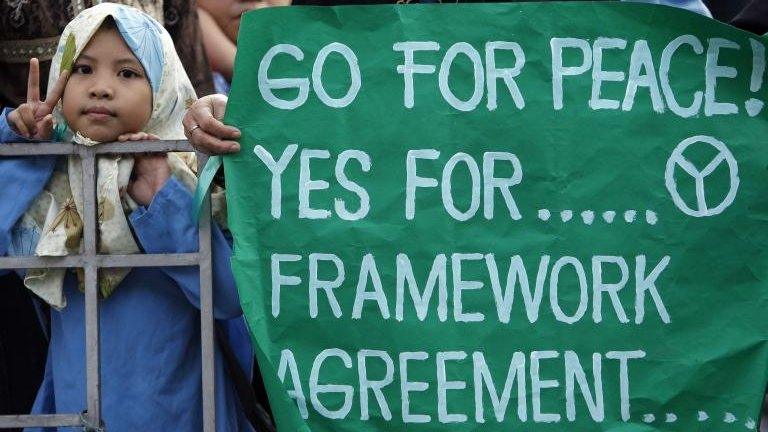
- Published8 October 2012
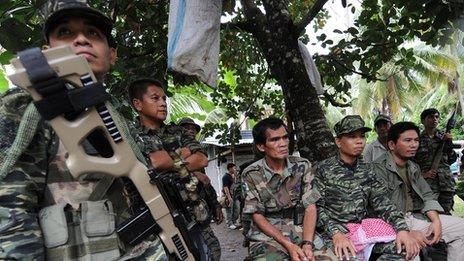
- Published5 July 2023
